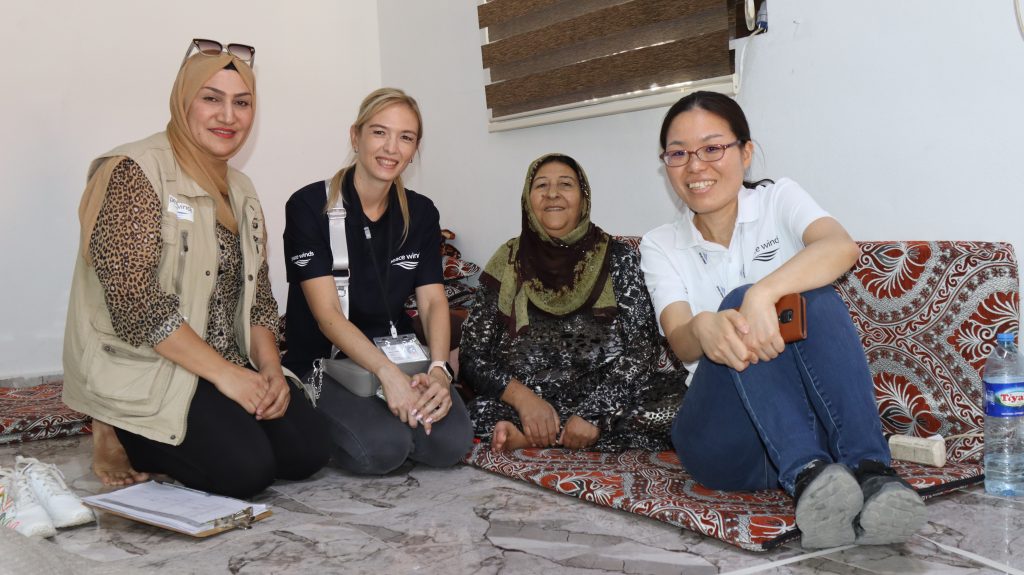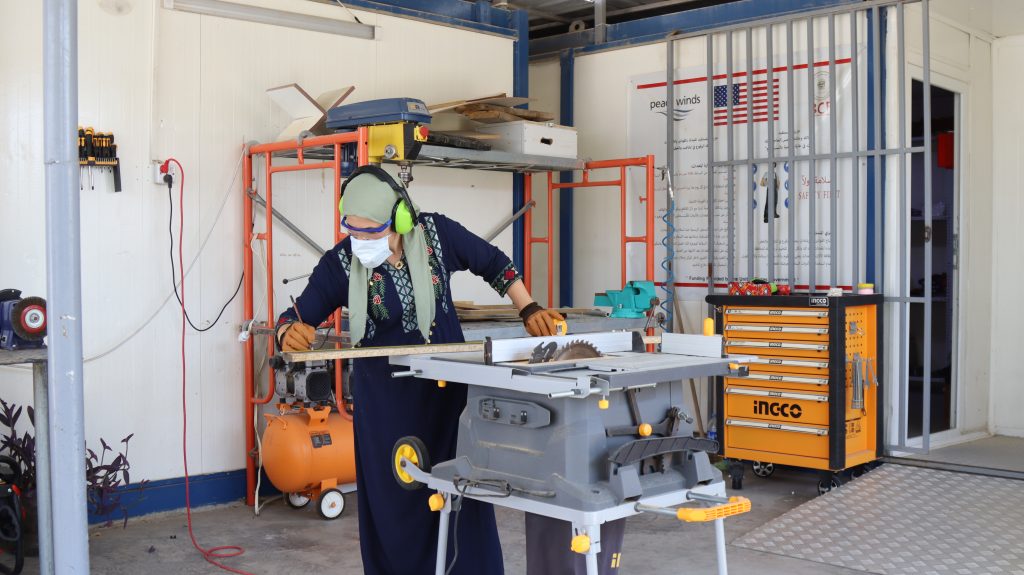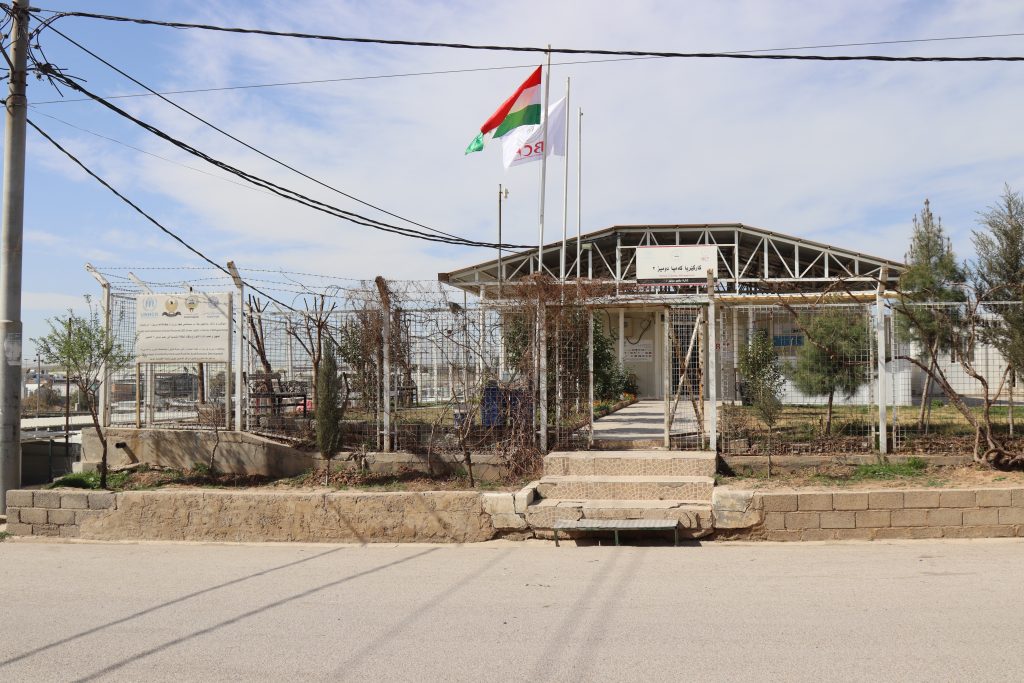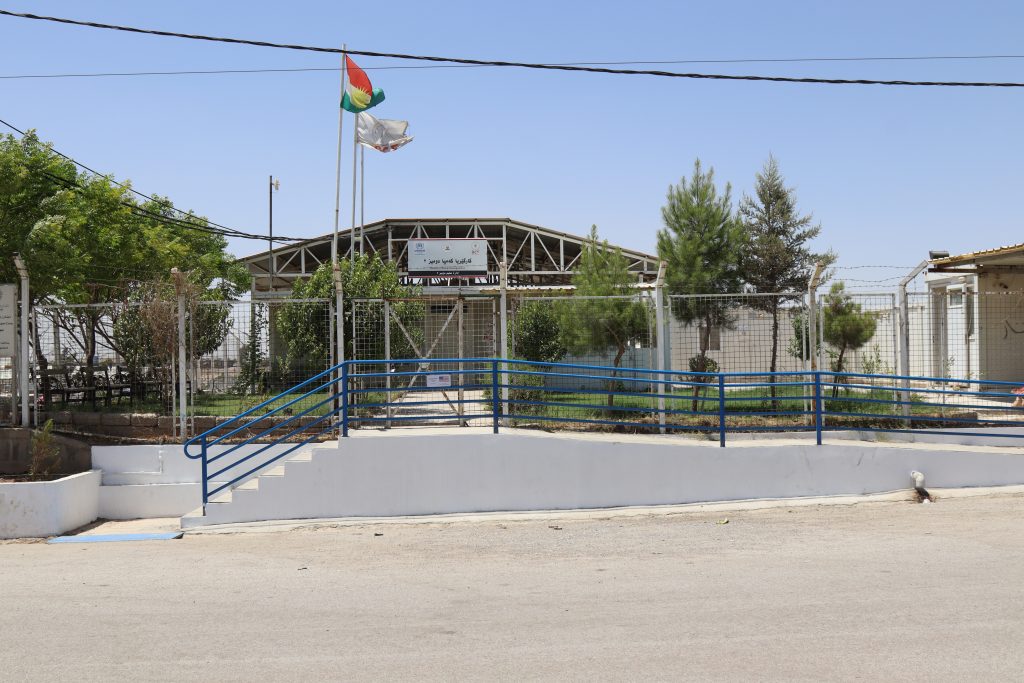Enhancing Safety, Independence, and Work Opportunities for Syrian Refugees in Iraq

Last year, Peace Winds began a new initiative funded by the U.S. State Department’s Bureau of Population, Refugees, and Migration (PRM) to increase accessibility and enhance job opportunities for Syrian refugees living in the Kurdistan Region of Iraq (KRI). Over the past 12 months, almost 25,000 refugees in seven camps throughout the region have benefitted from this program.
We are proud to report that 625 families in refugee camps in the Duhok region now live in homes that are safer and more accessible for family members with disabilities. Our teams in Duhok have also worked to make the camps more accessible as a whole, and in the past year, they completed 31 construction projects to modify public spaces. This means that places like schools, hospitals, mosques, community centers, camp offices, and public walkways are now easier to navigate for refugees with disabilities.
Sherin and her husband Abo are two Syrian refugees who benefited from this project. Sherin’s right leg was amputated due to diabetes-related complications, and she now uses a wheelchair. “My shower was bad,” Sherin said of her shelter before receiving the accessibility modifications. “When I used my wheelchair, it would get soaked in the water, and I once fell and broke my leg.”

“Peace Winds provided us with all the materials we needed,” said Abo about the upgrade process. “Cement, sand, windows, doors, and iron bars, and instructions on how to construct the wheelchair ramp. We employed local workers, and my daughter and I did some of the light work ourselves.” Abo also said he appreciated receiving a special shower chair for his wife and that Peace Winds paid the workers directly in cash.
“Now we are comfortable,” Sherin told us. “I can go [to the bathroom] by myself without any assistance from Abo or my daughter.” Sherin is just one of the many refugees who have reported feeling safer and more independent after receiving new wheelchair ramps, latrines, and showers in their homes. [Click here to watch Sherin and Abo’s interview.]
Similar to Abo and his daughter, many beneficiaries of this project chose to complete some or all of their own construction work through Peace Winds’ unique cash-for-work program. The program encourages refugees to be more invested in maintaining their homes in the long term, they earn wages for their work, and they build construction skills that they can use to find future work opportunities. In the last year, 2,650 refugees have benefited from this program. Nearly 20% of these were women.
Peace Winds’ workshops and tool service centers, which we run in partnership with Barzani Charity Foundation, are also a central part of helping refugees in Duhok and Erbil build the vocational skills they need to find job opportunities and support their families. These facilities allow refugees to take courses in topics such as welding, carpentry, electrical work, plumbing, and other construction-related areas, a growing industry in the KRI. In the last year, 1,502 participants benefited from these training sessions.
This program is especially focused on giving women and refugees with disabilities a leg up with their vocational skills. Out of more than 1,500 training course participants this year, more than 58% were women. Additionally, 70 of the 176 courses offered this year were tailored to participants with disabilities.
Peace Winds’ tool centers also allow refugees to borrow tools free of charge, which they often use to work on household repairs or personal projects. Because the centers are located right inside the camps, refugees save time and money they would otherwise use to rent tools from other facilities.
Sherihan is one woman who took advantage of these opportunities this year. The mother of three took a tool center training course in carpentry, which gave her the skills and confidence to repurpose her large wardrobe into a shoe cabinet that now fits better in her shelter.
“I heard about the tool service center after they distributed flyers in the camp and explained what tools and materials were available,” Sherihan said. “They taught me how to take measurements, cut pieces of wood, and install them in my shelter.” After the training, she also told Peace Winds, “I encourage other women in our camp to participate in these trainings. I’ve learned so much from them.” [Click here to watch Sherihan’s interview.]

Now, Peace Winds teams in Erbil and Duhok will focus even more heavily on facilitating work opportunities for Syrian refugees, internally displaced Yezidi Iraqis, and local community members. More than 42,000 individuals will directly benefit from this new program over the next two years. This will include expanded vocational training, additional cash-for-work opportunities, and apprenticeships with employers. We look forward to bringing updates about these new opportunities once our new program is off the ground.
Peace Winds’ programs for Syrian refugees in the KRI are funded and supported by PRM and the U.S. Consulate General Erbil.

